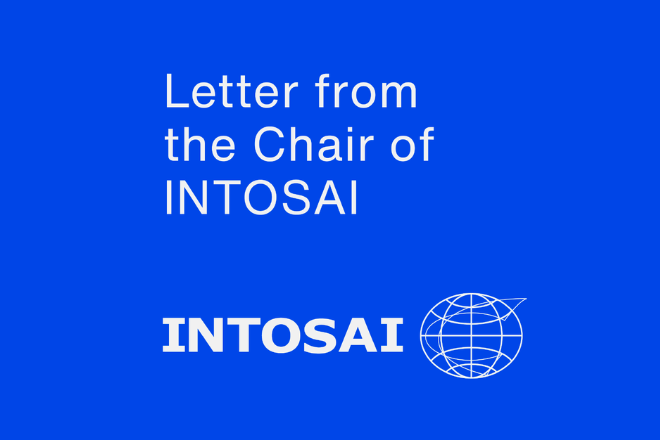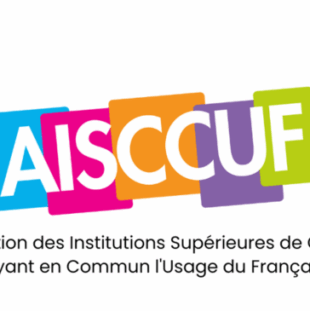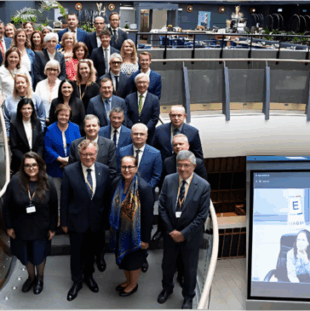The Role of Supreme Audit Institutions in the Prevention and Mitigation of Disasters

The chair of the International Organization of Supreme Audit Institutions (INTOSAI), Minister Bruno Dantas, in his February 2024 open letter, writes about INTOSAI’s role in preventing and mitigating disasters.

It is notorious that natural disasters have become increasingly more common on our planet. This alarming reality is a result of various factors, notably population growth, disorderly occupation of space, intense urbanization, and industrialization, which consequently cause global warming.
In 2023, Brazil faced several extreme weather events, such as devastating floods in the South Region and drought in the Amazon, the most severe in the last 121 years, having turned a fertile region into a desertic one, affecting the local biome and the population that rely on daily river transportation. Furthermore, earthquakes in Türkiye, Syria, Morocco, and Afghanistan, in tandem with a series of storms and tornadoes in the United States, causing significant damage and loss of thousands of lives. At the beginning of 2024, Japan was hit by an earthquake followed by a tsunami and Chile is suffering from forest fires that are already considered to be among the deadliest this century globally and the biggest national tragedy since the earthquake that struck the country in 2010.
United Nations (UN) data reveals an impressive increase in climate emergencies over the last two decades. According to a Report of the United Nations Office for Disaster Risk Reduction (UNDRR) between 2000 and 2020, 7,348 events that resulted in the death of more than a million people and in global economic losses of more than USD 2 trillion took place. Similarly, a report released in March 2023 by the Intergovernmental Panel on Climate Change (IPCC) confirmed that there is a relation between climate change and human action, especially when it comes to greenhouse gas emissions, the increase of which has devastating consequences, such as loss of livelihood and the destruction of homes and communities.
It is important to highlight that not everyone is equally affected by this reality. In 2023, the International Day for Disaster Risk Reduction, held every October 13, highlighted the connection between disasters and inequality: unequal access to services leaves the most vulnerable exposed to the danger of disasters; meanwhile, the effects of the disasters aggravate the inequalities. The situation becomes even more alarming in a context where, according to IPCC data, around 3.6 billion people, or half the world’s population, live in highly vulnerable contexts.
The significance of Supreme Audit Institutions ‘ performance in emergency situations was discussed during the XXIV International Congress of Supreme Audit Institutions (INCOSAI), held in Rio de Janeiro in 2022. The recent COVID-19 pandemic reinforced the need for audit agencies to be prepared to act swiftly and to support their governments in addressing crises, whether they are of a health or financial nature or caused by wars and natural disasters.
I believe that Supreme Audit Institutions can effectively contribute to strengthening the global response capacity against disasters. We can assess disaster management policies in our countries, offering a comprehensive view of the available organizational structure and processes needed to help reduce disaster risks. We can also oversee governments’ response during times of crisis. With the increase in the number of emergencies, the anticipation of audit agencies in understanding risks and carrying out audits and monitoring in real-time is essential to overcome critical moments.
Furthermore, sharing experiences and best practices assists the International Organization of Supreme Audit Institutions (INTOSAI) community and Supreme Audit Institutions in their role in ensuring efficiency and effectiveness in the use of government resources in times of crisis.
Of major importance is the joint effort undertaken by the INTOSAI Development Initiative (IDI) and the Working Group on Environmental Audit (WGEA) to support the Global Cooperative Audit of Climate Change Adaptation Actions (CCAA). Disaster risk reduction was one of the themes selected for this project, demonstrating the relevance and urgency of the topic in the current context of climate emergencies.
Additionally, INTOSAI GUID 5330, approved in 2020, provides guidelines and orientations for disaster management audits, to evaluate government actions aimed at reducing disaster risks, responding to emergencies, implementing post-disaster measures, as well as enabling rehabilitation and reconstruction.
When it comes to disasters, resilience is the keyword. According to Mohamed Nasheed, former President of the Maldives and current member of the country’s Parliament, in a speech given during an event promoted by the WGEA in 2022, “resilience is about staying alive in a climate emergency”. And building disaster resilience requires a long-term global commitment.
Society and other economic stakeholders are also part of the solution. In this way, dialogue between Supreme Audit Institutions and the various actors involved is crucial, allowing our actions to have greater scope and effectiveness and to be more in line with our countries’ realities.
INTOSAI recognizes the need to act and fully play our role. I am convinced that the exchange of good practices and challenges between Supreme Audit Institutions can bring valuable benefits to all.
Let us continue on this journey together!






